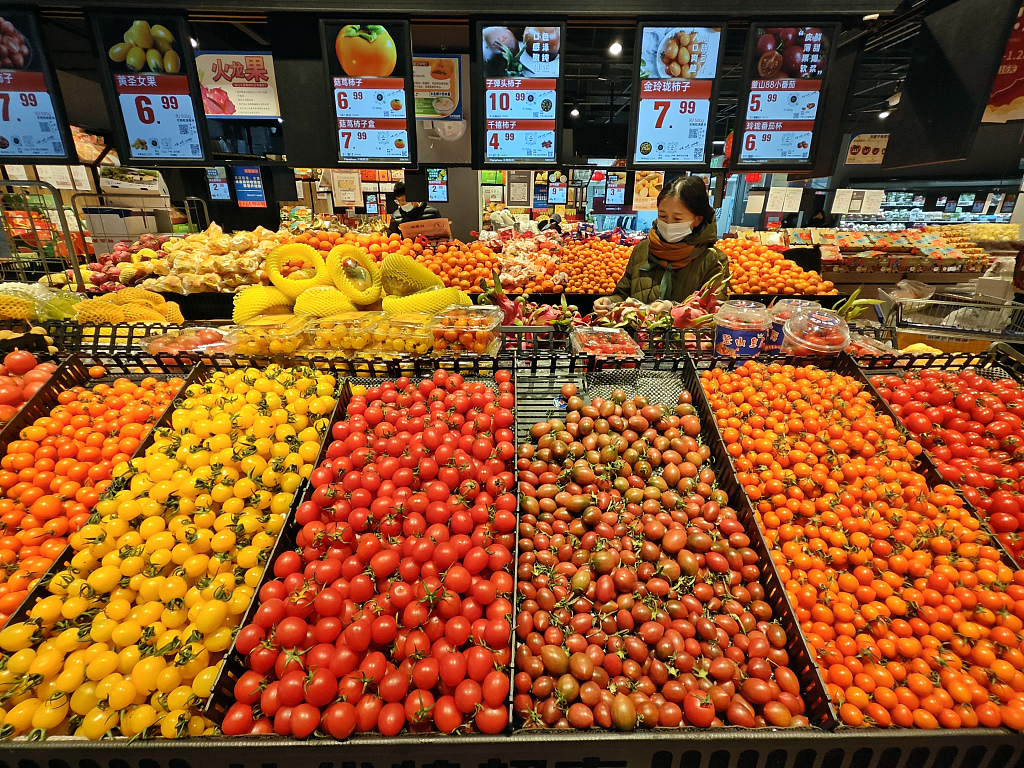Experts: CPI data points to recovery in demand


China's economy is exhibiting renewed vigor, with recent indicators suggesting a robust start for this year, as the country's consumer prices returned to positive territory for the first time in six months thanks to Spring Festival holiday spending.
Analysts said the latest data point to a gradual improvement in domestic demand, and they estimated that inflation will be kept within a reasonable range in the coming months, supported by steady economic recovery and robust policy measures.
Meanwhile, they cautioned that the broader economy will continue to grapple with pressures and uncertainties both domestically and internationally. They also said they expect the government to step up both fiscal and monetary policy support, including more fiscal spending to bolster domestic demand alongside further reserve requirement ratio reductions and policy rate cuts.
Data from the National Bureau of Statistics showed that the country's consumer price index, a main gauge of inflation, rose 0.7 percent year-on-year in February after a 0.8 percent decline in January, well above market expectations.
The growth in core CPI, which excludes volatile food and energy prices and is deemed a better gauge of the supply-demand relationship in the economy, rose 1.2 percent year-on-year in February, after a 0.4 percent rise in January.
"The improvement in CPI indicates that the economy's endogenous driving force is strengthening amid robust demand for commodities and services," said Zhang Xuewu, head of the price analysis and forecasting division at the Price Monitoring Center, which is part of the National Development and Reform Commission.
China's producer price index, which gauges factory-gate prices, dropped 2.7 percent year-on-year in February, following a 2.5 percent fall in January, the NBS said.
Zhang said the PPI dropped at a faster pace because February marks the offseason for industrial production due to Spring Festival, and the decline is also affected by still-weak external demand.
As domestic demand is set to turn for the better, with a series of policies promoting consumer spending and expanding effective investment taking effect, a moderate rise in overall price levels is anticipated in 2024, Zhang added.
Xiong Yuan, chief economist at Guosheng Securities, said the large gain in the year-on-year CPI was mainly due to the effect of the shifting Chinese New Year.
"Stripping out the shifting holiday effect, the price will remain at low levels, indicating the persisting pressures faced by the broader economy," Xiong said.
Looking ahead, Xiong said he expects the country to introduce a new round of policies — including potential reserve requirement ratio cuts and interest rate reductions — and further expand the size of a targeted funding tool, pledged supplementary lending, to bolster the world's second-largest economy.
Addressing a recent news conference in Beijing, Pan Gongsheng, governor of the People's Bank of China, the country's central bank, said the PBOC will deem keeping prices stable and promoting a moderate recovery in prices as important considerations of monetary policy adjustments.
According to Pan, China still has room to further cut the reserve requirement ratio — the proportion of money that lenders must hold as reserves — as strengthened macroeconomic adjustments are needed to cope with complex and changing international and domestic situations.
Louise Loo, lead economist at British think tank Oxford Economics, said the announcement was consistent with her team's baseline assumption of another pair of 25-basis-point cuts to the RRR in the coming quarters, as well as a cumulative 20 basis points in benchmark rate cuts to the one-year medium-term lending facility this year.
"China's real interest rates rose meaningfully last year, as inflation expectations fell on persistent disinflationary pressures, so rate cuts could help lower overall financing costs," she said.




































